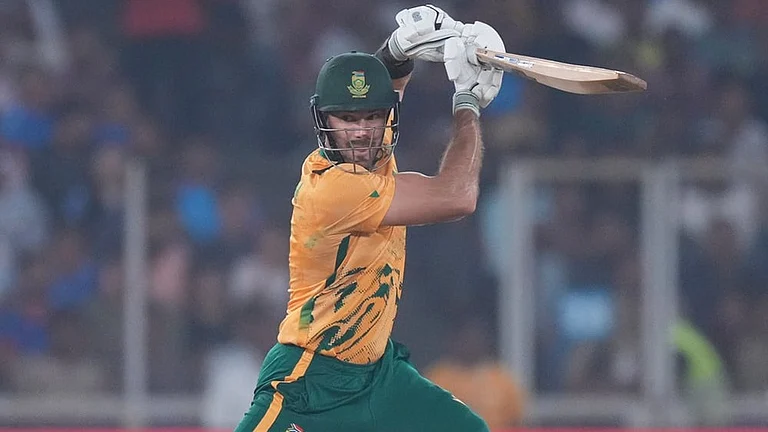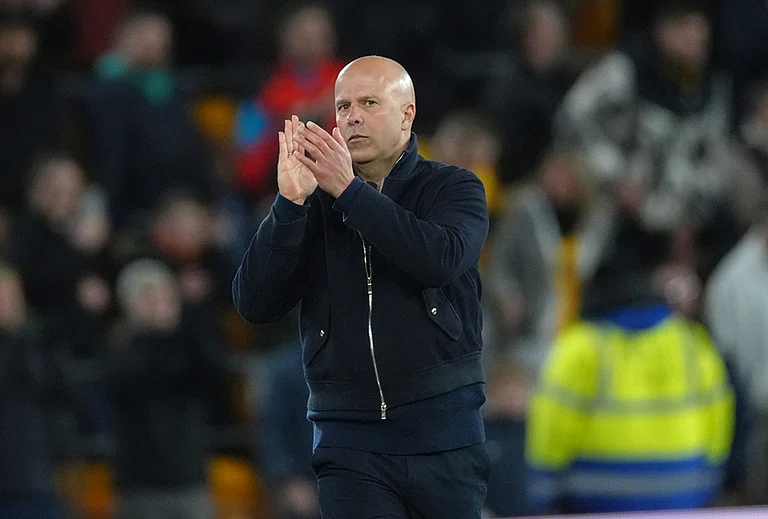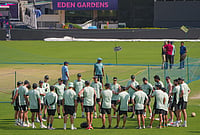BLAME it on the Congress. As the Indo-Pak foreign secretary-level talks ended on March 31, overtaken as they were by the political developments in New Delhi, there was a general sense of disappointment that the Congress action had come at such an inopportune time. On the day the Congress withdrew support to the Deve Gowda Government, Pakistani diplomats tried hard not to show their disappointment. They rationalised that in any case neither side had expected any breakthrough at this stage. The talks, as Indian officials had repeatedly said, were exploratory in nature.
At another level, the Pakistanis were very amused. Tired of India always talking down to Pakistan about its flawed democracy, here they had the Indian polity in classic action. Moreover, the day the Pakistani delegation landed in Islamabad from New Delhi, Prime Minister Nawaz Sharif went live on Pakistan TV announcing the scrapping of parts of the dreaded Eighth Amendment, which empowered the President to sack prime ministers. Democracy had been further boosted.
Some people suspected that Sitaram Kesri had deliberately sabotaged the talks. Callers jammed the telephone lines in the Pakistan High Commission in New Delhi with this query. Cartoons in Pakistani papers reflected this sentiment. A live breakfast talk show on PTV on April 2 had Kashmiris calling in and asking this question. Said a senior leader of the ruling Pakistan Muslim League (N): "First we had a weak, coalition government that could not afford to take difficult and unpleasant decisions. Now when we have a strong government here, things have changed drastically in New Delhi." "The talks have gone into a bit of a spin," admitted a former Indian diplomat reacting to the domestic developments. This has also meant that the post-NAM bilateral meeting between the two foreign ministers, I.K. Gujral and Gohar Ayub Khan, has become doubtful because of the political uncertainty in New Delhi. It will be quite understandable if Gohar Ayub does not extend his stay by two days after the NAM meeting this month for the proposed bilateral talks.
The disappointment notwithstanding, the bottomline is that the talks took place from March 28 to March 31, and from the original three-day period, they spilled over into a fourth day. The big question is, what transpired at these talks? Did India and Pakistan come close on anything? Not really.
One thing is certain though. As Indian Foreign Secretary Salman Haider said, they had detailed talks to work out "modalities and structures for future talks to see if we could establish some procedures". On returning to Islamabad, the Pakistan foreign office spokesman and Additional Secretary, Khalid Salim, said something similar: "There is need to delineate an agenda and fashion a mechanism for a sustained dialogue at the foreign secretary-level, so that an India-Pakistan summit could be eventually held." The importance of these procedural matters was evident from Haider's answer. Asked if the two teams were still trying to work out procedural matters, Haider reacted: "I notice an element of scepticism in this question. The procedural details are matters of consequence and were addressed with a great deal of seriousness." And that's a fact.
The members of the two delegations expended a great deal of energy and time trying to work this out. The Indian delegation is believed to have suggested that they pick up the thread on issues like Sir Creek, Siachen and the Wullar barrage where they had left off some years ago. As is well-known, the two sides were close to signing agreements on Siachen and Wullar barrage while the Sir Creek maritime boundary issue was not far from being resolved.
BUT the Pakistanis responded that some elements of the earlier agreements, especially on Siachen, had to be reopened. This was not surprising. In the chorus that preceded the talks on a possible and quick solution and demilitarisation of Siachen, Pakistan Army Chief Gen. Jehangir Karamat had said: "There will be no demilitarisation in Siachen." Privately Pakistani officials say their country is in a comfortable position in Siachen. "When a few years ago the agreement on Siachen glacier was ready to be signed, the Indians ducked, never to be seen again. They have been dropping hints at these talks that we should come around on Siachen. But why should we?" asked a senior Pakistani official. There is a consen -sus in Pakistan that Indians are being bled dry on the frozen heights of Siachen and they can continue being there.
However, at the talks, the Pakistani delegation, suggesting that Siachen and other issues should be reopened, came up with an idea of forming joint working groups separately for every bilateral dispute, including Jammu and Kashmir. This wasn't acceptable to the Indian side. In fact, New Delhi was not averse to working groups per se, but it wanted to know what would be the terms of reference.
India was particularly touchy about Kashmir as it can never agree to a working group discussing the plebiscite issue. The Indian delegation is believed to have suggested a working group in the context of terrorism, which in turn can't be acceptable to Pakistan. The mechanism for the talks is the biggest hurdle before the two countries. If Pakistan sticks to a working group on Kashmir, India will never agree; and if India sticks to its formulation of the working group, Pakistan will never agree.
Another issue which took up considerable time was the bland joint statement. Pakistan wanted Kashmir mentioned, India did not. The final formulation of its third paragraph read: "The two foreign secretaries discussed all outstanding issues of concern to both sides in a frank, cordial and constructive manner." No doubt, the statement went as India wanted. The Pakistanis were disappointed. They had been thrilled when in response to Pakistan Foreign Secretary Shamsad Ahmed's statement at the airport about discussing the 'core issue' of Kashmir, Haider had said all issues would be discussed. However, on the second day, Khalid Salim, emerging from Hyderabad House, said: "There has been no meeting of the minds. We have given the Indian side the possible agenda and the mechanism to evolve the agenda but we have not found common ground." Subsequently, they failed to get Kashmir mentioned in the joint statement.
While all issues of concern to the two sides were discussed, Kashmir took up a lot of time. The Pakistanis conveyed to their Indian counterparts that any progress on the various bilateral issues was linked to Kashmir. They suggested, as in the past, reduction of troops from Kashmir and allowing Amnesty International into the Valley. Only after that could there be movement on other issues, they said. India rejected this, arguing that the withdrawal of troops depended on Pakistan stopping aid to the separatists. It flatly rejected the demand for allowing Amnesty International into the Valley, pointing out that ground realities in Kashmir had to be accepted for any discussion on the status of Kashmir.
There is no gainsaying that Kashmir is the crucial issue. "Discussions cannot be stopped on any issue," as Khalid Salim said. "But Pakistan is hoping that since Kashmir is being accepted as an issue for discussions, a stage will finally come when the final decision will be taken by the politicians." The talks were decidedly smooth. The fact that they took place at all was indicative of a rethinking in the Pakistani establishment. However, the establishment was wary of making too many concessions.
"There is a realisation even in the army that Pakistan's policy on Kashmir has led it nowhere these past 50 years. Added to this are signals from Washington that the time has come for Islamabad and New Delhi to put their act together," a senior army official had said just before the talks. "Why should we be seen shying away from the talks? It suits us to get the Indians to sit across the table and talk about Kashmir." But the talks on the talks can't go on endlessly. While at this round, the eighth in recent years, there was no expectation of any breakthrough, "it is difficult to go on meeting and not show anything for it", said a Pakistani diplomat involved in the discussions. "That creates problems on both sides." But at least the two sides have agreed to disagree and meet again for another round of talks.

















